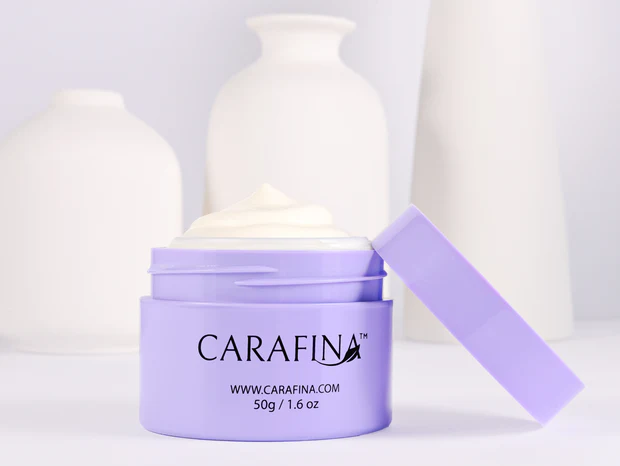By Annie Sciacca
Halloween candy could be in for a California makeover.
Asserting that the Food and Drug Administration has not moved quickly enough on dangerous food additives, state lawmakers last month passed the California Food Safety Act, which bans four ingredients found in popular snacks and packaged foods — including candy corn and other Halloween treats.
Consumer health advocates hope the ban, signed into law by Democratic Gov. Gavin Newsom on Oct. 7 and set to take effect in 2027, will lead confectioners and food producers to modify their recipes for products sold both in California and elsewhere around the country.
The law prohibits the manufacture and distribution of brominated vegetable oil, potassium bromate, propylparaben, and red dye No. 3, which are used in processed foods including variations of instant potatoes and store-brand sodas, as well as candies. The additives have been linked to increased risks of cancer and nervous system problems, according to the Environmental Working Group, which sponsored the legislation, and are already banned in many other countries.
Melanie Benesh, vice president of government affairs for the Environmental Working Group, celebrated the new law as “a very big deal” and the first of its type in the country.
Food manufacturers and their lobbyists opposed the legislation, rejecting the idea that the four additives are unhealthy and arguing that such assessments should be made by the FDA.
“We should rely on the scientific rigor of the FDA in terms of evaluating the safety of food ingredients and additives,” said Christopher Gindlesperger, a spokesperson for the National Confectioners Association.
But food safety advocates say the FDA has moved far too slowly in regulating food chemicals.
“It’s unacceptable that the U.S. is so far behind the rest of the world when it comes to food safety,” said state Assembly member Jesse Gabriel (D-Woodland Hills), who introduced the bill along with Assembly member Buffy Wicks (D-Oakland), in a statement.
EMAIL SIGN-UP
Subscribe to KFF Health News’ free Morning Briefing.
A letter sent to lawmakers from the sponsors of AB 418 this year noted that many new additives put in food products are not reviewed by the FDA before reaching the market. A provision in federal law called “generally recognized as safe” allows the industry to designate the chemicals as safe enough to include in food, even without notifying the agency.
FDA spokesperson Enrico Dinges, referencing the Federal Food, Drug, and Cosmetic Act, noted in an email that “food and color additives must be approved for their intended conditions of use, and safety information must be available to establish a reasonable certainty of no harm before they are used in products on the market.”
He added that the agency regularly reviews new data on food chemicals, and it is working on a proposed rule to ban the use of brominated vegetable oil — one of the ingredients included in the new California law — as a food ingredient. Dinges said it was “not uncommon for a substance to be approved in one jurisdiction but not in another.” He noted some color additives are authorized for use in Europe and elsewhere but not allowed in the U.S.
California’s initiative made headlines this year as a “Skittles ban” that would wipe popular candies off California shelves. But Gabriel and other proponents of the bill said the intention is simply to require modifications in the ingredients, as has already happened in Europe.
One additive included in an original version of the bill — titanium dioxide, which is in Skittles and other candy — was removed from those products before the bill reached its final version. It has been labeled a carcinogen by the International Agency for Research on Cancer.
“I admire the California legislature for doing this,” said Joan Ifland, a researcher who studies food addiction and a fellow at the American College of Nutrition. She hopes state lawmakers go further in addressing food safety issues and the chemicals in processed food. “It should give courage to other legislators.”
Perhaps the most prominent ingredient on California’s banned list is red dye No. 3. It is allowed only in candied and cocktail cherries in the European Union but is widely used in the U.S.
A search of Food Scores, an online database maintained by the Environmental Working Group, generated more than 3,000 products that contain the chemical. The list includes items like frosted pretzels and scores of brand-name candies such as Peeps and Pez. It also includes items like fruit cocktail cups, protein drinks, and yogurts.
Peeps is already phasing out the ingredient — products will no longer contain red dye No. 3 after the 2024 Easter season, according to Keith Domalewski, director of marketing for its parent company, Just Born Quality Confections.
“Just Born has always evolved with new developments and consumer preferences,” Domalewski said in an emailed statement. “We have worked hard to develop new formulations to bring fans the colorful PEEPS they know and love.”
Pez representatives did not respond to a request for comment. The two major manufacturers of candy corn also did not comment.
The FDA banned some uses of the color additive in 1990, confirming it had been linked to increased risks of cancer, and prohibited its use in cosmetics and as a pigment in various foods. It said at the time it was taking steps to restrict the chemical — but never did.
Another of the newly banned ingredients, potassium bromate, has also been linked to cancer and is on California’s Proposition 65 list of ingredients that may pose increased cancer risks. It also has not been banned.
Food manufacturers and distribution groups did not indicate whether they would challenge California’s new law.
This article was produced by KFF Health News, which publishes California Healthline, an editorially independent service of the California Health Care Foundation.
RELATED TOPICS
Lorem ipsum dolor sit amet, consectetur adipiscing elit. Ut elit tellus, luctus nec ullamcorper mattis, pulvinar dapibus leo.




